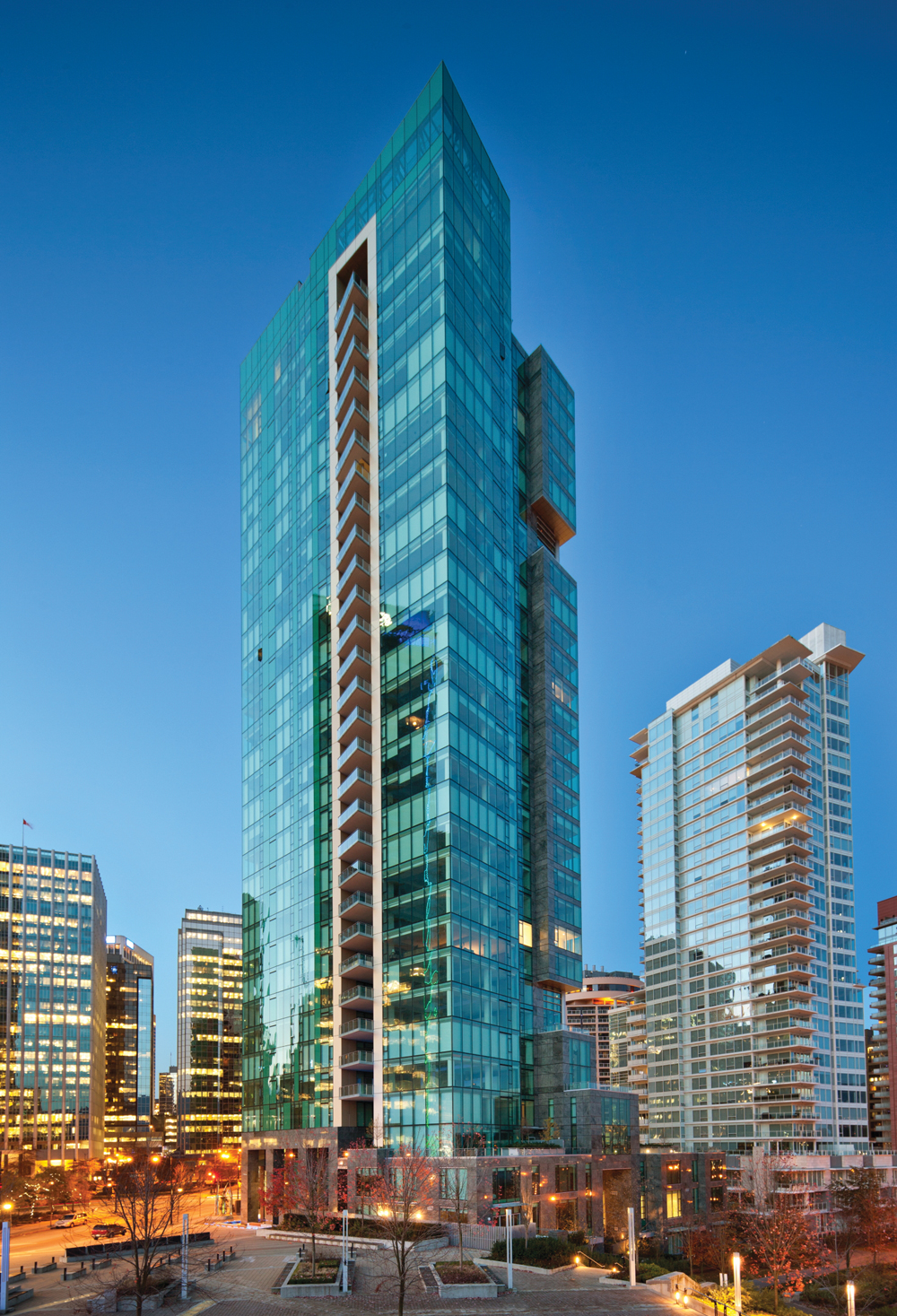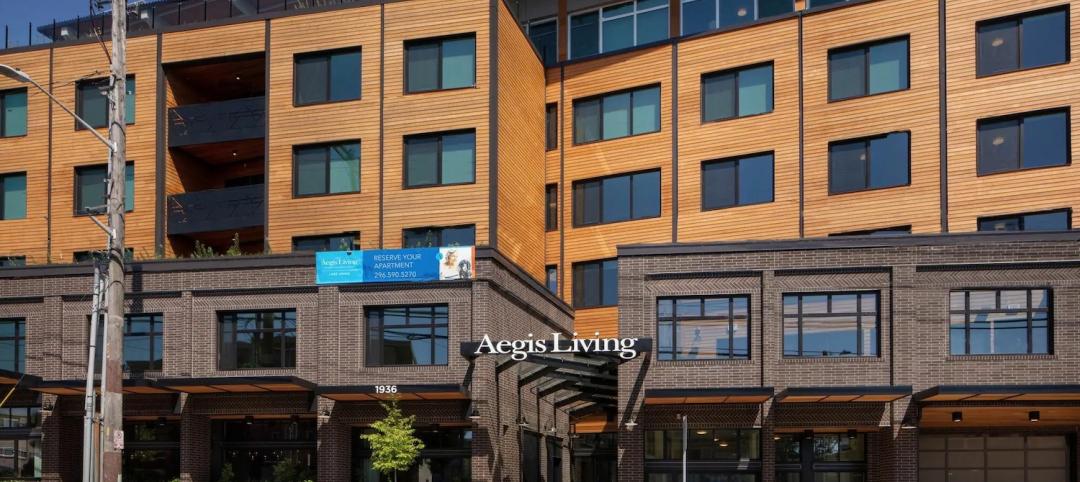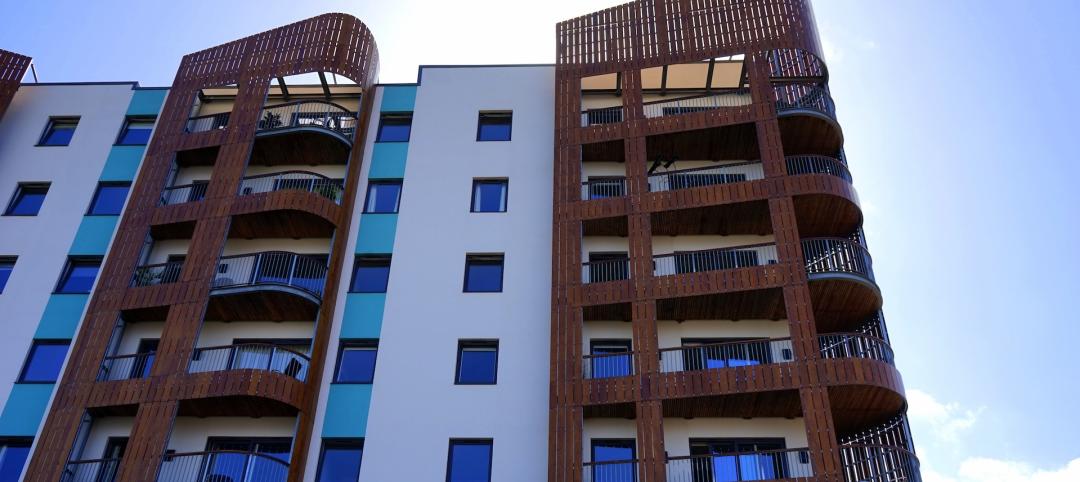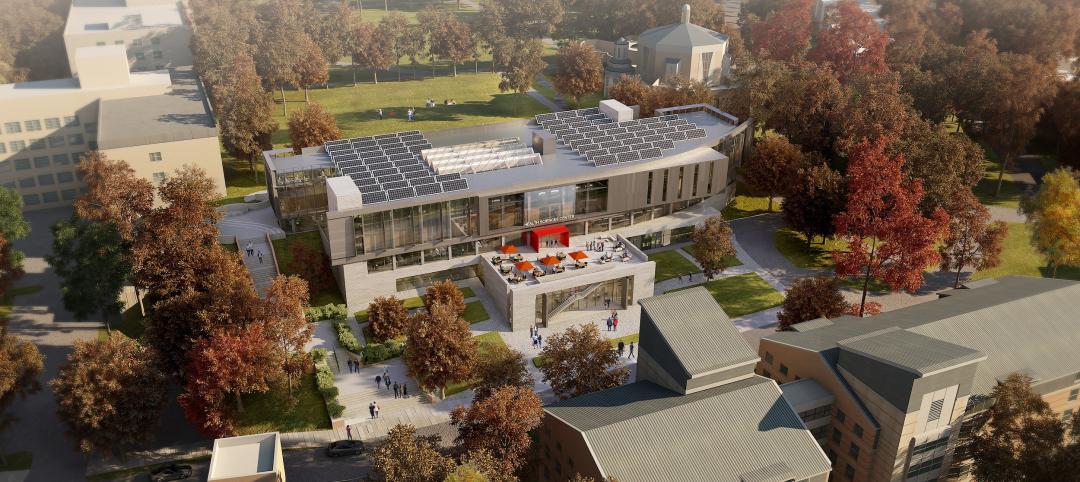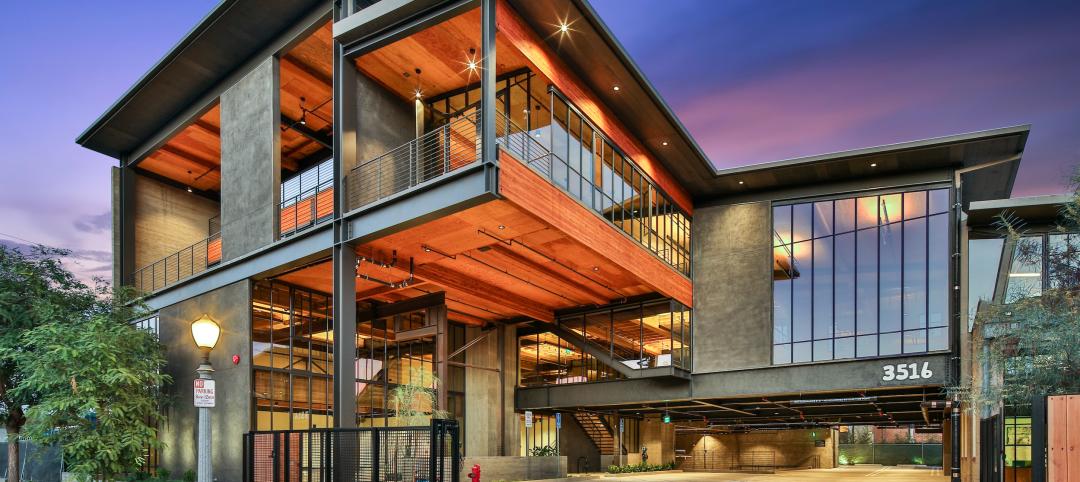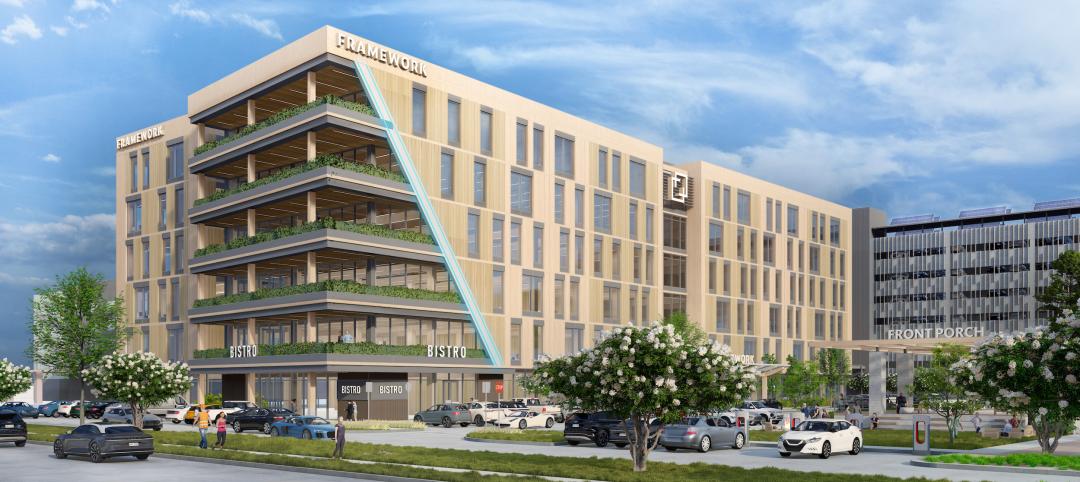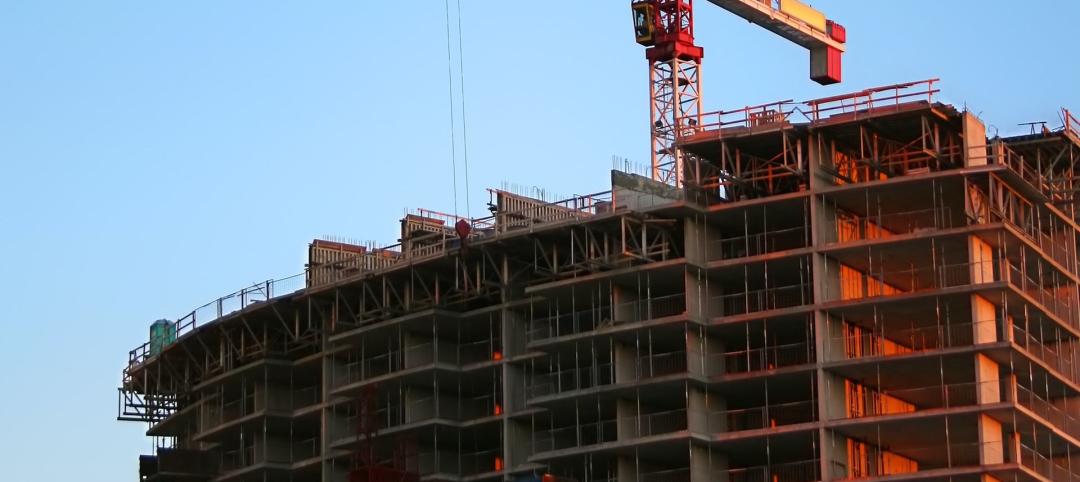Seven years removed from the beginning of the most severe housing market crash since the Great Depression, the U.S. single-family residential sector is finally starting to snap out of its long period of malaise. Home prices, new-home sales, existing-home sales, and housing starts have all trended higher during the past 12-18 months, and while the market remains significantly depressed relative to 2005-06 output, it’s safe to say the single-family housing sector is in a much healthier state.
During the depths of the recession, multifamily construction remained one of the few relatively bright spots of the nation’s residential building sector, driven largely by pent-up demand for apartments and other rental units, such as student and senior housing. But as the economy recovers and homeownership becomes a realistic option for more consumers, the question becomes: Does this spell the end of the multifamily sector’s hot streak?
Not anytime soon, according to FMI’s Construction Outlook Report for First Quarter 2013, which predicts a 31% YOY increase in multifamily construction spending in 2013 and another 27% in 2014 (following 47% growth in 2012). The sector is expected to reach its housing boom peak ($54 billion in annual construction spending) by 2017—although annual percent growth will taper off over the next four years.
Real estate investment services firm Marcus & Millichap is forecasting long-term demand for rental housing to remain strong across most U.S. metro markets. According to its 2013 Apartment Outlook, the recent boom in apartment construction—85,000 units completed in 2012 and an estimated 150,000 units to come online this year, up from just 40,000 in 2011—isn’t enough to meet the pent-up demand for rentals in most markets.
TOP MULTIFAMILY ARCHITECTURE FIRMS
2012 Multifamily Revenue ($)1 IBI Group $42,729,4362 Niles Bolton Associates $22,446,8213 Perkins Eastman $17,400,0004 WDG Architecture $17,233,0005 Solomon Cordwell Buenz $16,000,0006 RTKL Associates $12,992,0007 Perkins+Will $10,783,6198 Skidmore, Owings & Merrill $10,179,0009 HOK $7,730,00010 VOA Associates $6,902,030
TOP MULTIFAMILY ENGINEERING FIRMS
2012 Multifamily Revenue ($)1 STV $42,284,0002 URS Corp. $42,072,0703 AECOM Technology Corp. $39,580,0004 Parsons Brinckerhoff $37,500,0005 Michael Baker Jr. $21,020,0006 Buro Happold Consulting Engineers $20,430,0007 Wiss, Janney, Elstner Associates $18,070,0008 Thornton Tomasetti $13,899,0309 KPFF Consulting Engineers $13,000,00010 Simpson Gumpertz & Heger $10,200,000
TOP MULTIFAMILY CONSTRUCTION FIRMS
2012 Multifamily Revenue ($)1 Lend Lease $1,105,667,0002 Clark Group $733,189,9593 Balfour Beatty $416,669,8564 Swinerton Builders $379,053,2495 Walsh Group, The $277,912,5256 James McHugh Construction $239,964,2587 Whiting-Turner Contracting Co., The $212,734,1208 Weis Builders $207,290,0009 Suffolk Construction $203,442,89410 Harkins Builders $201,000,000
Giants 300 coverage of Multifamily brought to you by Andersen www.andersenwindows.com
“Many metros are well short of new product coming online,” said Hessam Nadji, Managing Director, Research and Advisory Services with Marcus & Millichap, during the firm’s 2013 apartment market forecast. “And the new product that is coming online is ultra-high-end and not really affecting the workforce housing or the middle of the bell curve, where the demand is. Overall, we do not expect building to become an issue whatsoever.”
There are enough impediments to homeownership, experts argue, to keep the rental market strong for the immediate future, including a still-recovering jobs market, increasingly stringent mortgage requirements, and a sizable swath of the home-buyer base that is still reeling from the effects of the housing market downturn, with underwater or delinquent mortgages. Plus, the nation’s two largest generational groups—the baby boomers, who are at or near retirement age, and the Millennials, most of whom are in the very early stages of their career—are ripe for long-term rentals.
This outlook is music to Jeffrey Raday’s ears. Raday is President of McShane Construction, one of the nation’s largest multifamily contractors. The sector will represent more than half of the company’s business in 2013.
“Along with the positive outlook for market-rate and luxury rental developers, we are also encouraged by the growth expectations within the student housing, senior living, affordable housing, and supportive living sectors,” says Raday. “We enjoy a significant amount of both new and renovation construction activity in those markets.”
Despite the exuberance, multifamily experts are fearful of overbuilding, as developers race to catch the market upswing. With nearly a half-million rental units expected to come online between 2013 and 2015, chances are developers and owners in certain markets and submarkets will be caught with their pants down as demand eases.
Luxury tops multifamily trends
Multifamily housing trends vary market to market, but experts point out several overarching shifts that are driving change in the way projects are designed, built, and developed:
Luxury prevails. From urban condos to suburban apartments to rural student housing, developers are meeting the market’s demand for lavish amenities and features, including clubhouses, workout facilities, pools, spas, and upgraded appliances and finishes.
Greater need for space. One-bedroom units currently make up about 80% of the multifamily rental stock in most metros, but Niles Bolton, AIA, CEO and Chairman of Niles Bolton Associates, expects that number to decrease in the coming years as more baby boomers hit the market.
“We are seeing more product with larger units favoring two-bedroom luxury product being developed in affluent, stable neighborhoods,” he says. “I expect to see longer-term rentals in nice properties as empty nesters seek rental homes not located in senior communities.”
Micro units—rentals as small as 250 sf—are gaining acceptance among Millennials, who value location, affordability, and mobility over space.
In addition, developers working in tight, urban spaces have been successful in getting approval for tall, slender structures, allowing them to build where the demand is highest.
“Advances both in structural design and building materials have made constructing skinny multifamily towers much easier than a few years ago,” says Jeff Arfsten, Lend Lease’s Interim Managing Director and COO, Project Management and Construction. “Steel-reinforced concrete is more than twice as strong as it was a generation ago.”
Moving away from the box. Demand is up for complex designs that break up the typical multifamily box, such as sloping walls, high slab heights, and large ceiling-to-floor views, according to Arfsten. “Not many multifamily buildings just go straight up anymore,” he says. “The complexity of designs seems to be indicative of the developer being able to seek higher prices per unit.”
Ditching street-level retail. Bolton says municipalities are starting to ease on the requirements for street-level retail on multifamily projects. “Too many developments over the last 10 years have struggled with city-mandated retail space that has remained vacant because the density and activity were not there to support it,” he says.
Read BD+C's full Giants 300 Report
Related Stories
Headquarters | May 9, 2023
New Wells Fargo development in Texas will be bank’s first net-positive campus
A new Wells Fargo development in the Dallas metroplex will be the national bank’s first net-positive campus, expected to generate more energy than it uses. The 850,000-sf project on 22 acres will generate power from solar panels and provide electric vehicle charging stations.
Regulations | May 8, 2023
Supreme Court case likely to have huge impact on Clean Water Act
A case before the Supreme Court will likely determine how the Clean Water Act is interpreted and the ruling could open up new areas for development within or adjacent to wetlands.
Senior Living Design | May 8, 2023
Seattle senior living community aims to be world’s first to achieve Living Building Challenge designation
Aegis Living Lake Union in Seattle is the world’s first assisted living community designed to meet the rigorous Living Building Challenge certification. Completed in 2022, the Ankrom Moisan-designed, 70,000 sf-building is fully electrified. All commercial dryers, domestic hot water, and kitchen equipment are powered by electricity in lieu of gas, which reduces the facility’s carbon footprint.
Multifamily Housing | May 8, 2023
The average multifamily rent was $1,709 in April 2023, up for the second straight month
Despite economic headwinds, the multifamily housing market continues to demonstrate resilience, according to a new Yardi Matrix report.
Digital Twin | May 8, 2023
What AEC professionals should know about digital twins
A growing number of AEC firms and building owners are finding value in implementing digital twins to unify design, construction, and operational data.
University Buildings | May 5, 2023
New health sciences center at St. John’s University will feature geothermal heating, cooling
The recently topped off St. Vincent Health Sciences Center at St. John’s University in New York City will feature impressive green features including geothermal heating and cooling along with an array of rooftop solar panels. The geothermal field consists of 66 wells drilled 499 feet below ground which will help to heat and cool the 70,000 sf structure.
Office Buildings | May 4, 2023
In Southern California, a former industrial zone continues to revitalize with an award-winning office property
In Culver City, Calif., Del Amo Construction, a construction company based in Southern California, has completed the adaptive reuse of 3516 Schaefer St, a new office property. 3516 Schaefer is located in Culver City’s redeveloped Hayden Tract neighborhood, a former industrial zone that has become a technology and corporate hub.
Mass Timber | May 3, 2023
Gensler-designed mid-rise will be Houston’s first mass timber commercial office building
A Houston project plans to achieve two firsts: the city’s first mass timber commercial office project, and the state of Texas’s first commercial office building targeting net zero energy operational carbon upon completion next year. Framework @ Block 10 is owned and managed by Hicks Ventures, a Houston-based development company.
Market Data | May 2, 2023
Nonresidential construction spending up 0.7% in March 2023 versus previous month
National nonresidential construction spending increased by 0.7% in March, according to an Associated Builders and Contractors analysis of data published today by the U.S. Census Bureau. On a seasonally adjusted annualized basis, nonresidential spending totaled $997.1 billion for the month.
Hotel Facilities | May 2, 2023
U.S. hotel construction up 9% in the first quarter of 2023, led by Marriott and Hilton
In the latest United States Construction Pipeline Trend Report from Lodging Econometrics (LE), analysts report that construction pipeline projects in the U.S. continue to increase, standing at 5,545 projects/658,207 rooms at the close of Q1 2023. Up 9% by both projects and rooms year-over-year (YOY); project totals at Q1 ‘23 are just 338 projects, or 5.7%, behind the all-time high of 5,883 projects recorded in Q2 2008.


